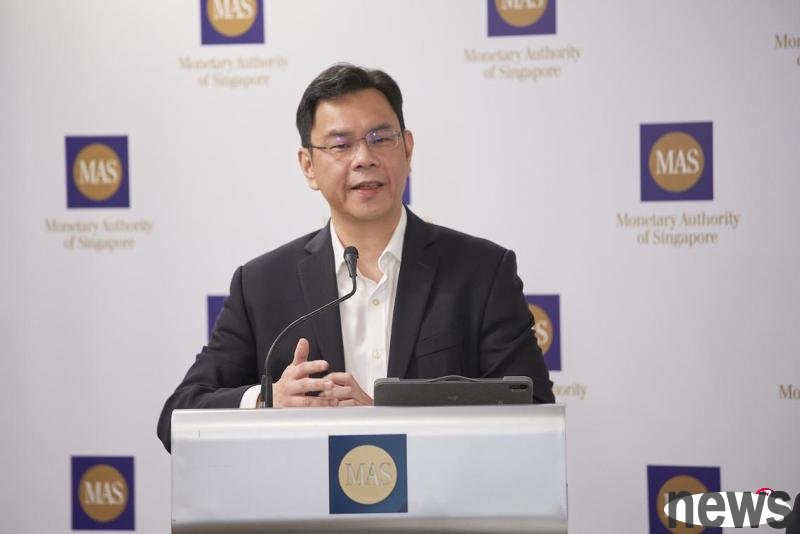
Xie Yanzhen said that the HKMA maintains medium-term price stability and will provide stability for the Singapore economy in an era full of uncertainties and fundamental changes.
Potential triggers include escalating trade conflicts, increasing geopolitical tensions, and rising investor concerns about financial and fiscal policy.
"The disconnect between the risks faced by the global economy and the current moderate pricing of the market means that once the risk situation comes true, the financial market may experience severe pullbacks and volatility."
Regarding the economic outlook, Xie Yanzhen said that the global economy is basically expected to slow down in the second half of the year and inflation will also slow down. Singapore's economic growth in the first half of the year was better than expected, but it may slow down in the second half of the year.
He said that although global policy and macroeconomic uncertainty remained high, financial markets currently seem to expect the overall situation to be relatively moderate.
He pointed out that the HKMA is stepping up its efforts to conduct stress tests to evaluate the stability of my country's financial system. This year, the HKMA considered more severe situations during its tests, including a sudden tightening of the global financial environment, intensified volatility in financial markets, and continued trade shocks and policy instability.
Xie Yanzhen said that the HKMA is vigilant about the penetration of global market risks into Singapore, and my country's foreign exchange and money markets are still operating well.
In response to this, the Monetary Authority of Singapore has stepped up efforts to conduct stress tests to evaluate the stability of the domestic financial system. Tests show that local businesses and households remain robust overall, but smaller businesses in the outgoing sector and households with less stable incomes face risks.
my country's bank capital is strong and can withstand global economic recessionThe stock market has recovered from April volatility and rebounded to new highs, credit spreads remained narrowing, and the volatility index was at a low level. Despite the threat of tariffs, Asian currencies are still showing an appreciation trend.
However, some businesses and families are more susceptible to impact. Especially smaller companies in the outward-oriented sector, which may lead to a decline in revenue and liquidity due to reduced orders, should take measures as early as possible to prepare buffer liquidity and diversify revenue sources, including the use of the latest "Business Adaptation Grant".
Tests show that Singaporean banks have strong capital and can withstand the financial environment of global economic recession and austerity in the longer term. Local businesses and families are generally resilient and have a stable ability to repay debts.
HKA Secretary for the Secretary for the HKMA Xie Yanzhen pointed out this at the authorities' annual report conference Tuesday (July 15).
If trade and geopolitical conflict escalates and investors' concerns about financial and fiscal policy are intensified, financial markets may experience sharp corrections and drastic volatility.
Families with unstable income should plan their finances carefully to avoid carrying a lot of debts during this unstable period.
"The fundamental transformation and changes in the global economy will gradually emerge in the coming months and years. Tariffs and other trade restrictions, as well as geopolitical divisions, will bring more profound changes to trade, investment flows and supply chains."